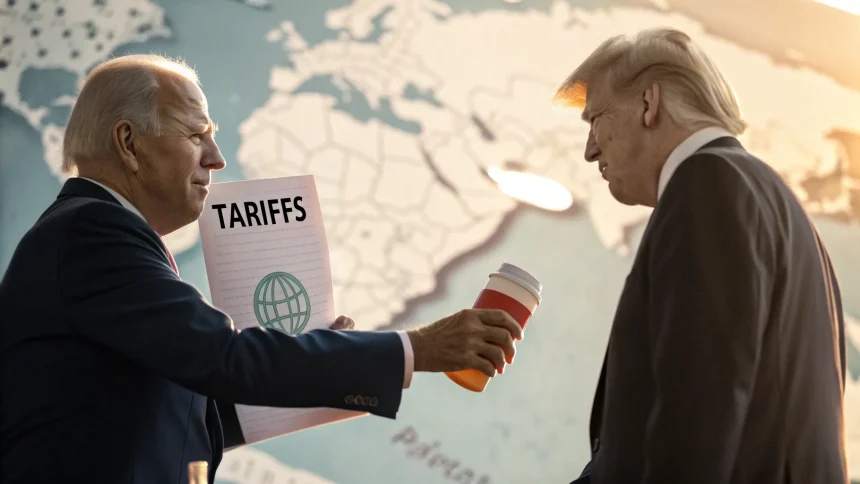Former President Donald Trump announced plans for substantial tariffs on pharmaceuticals imported into the United States, with rates potentially reaching as high as 250%. The statement came during an interview with CNBC’s “Squawk Box” program.
This declaration represents one of the most aggressive trade positions Trump has taken regarding the pharmaceutical industry, signaling a potential major shift in U.S. trade policy should he return to office.
Pharmaceutical Industry Impact
The proposed tariffs would significantly affect the global pharmaceutical supply chain, as many medications sold in the U.S. are manufactured abroad or contain ingredients sourced internationally. Major pharmaceutical companies often rely on manufacturing facilities in countries like India, China, and Ireland.
Such high tariffs could dramatically increase costs for drug manufacturers who import products or raw materials. These expenses would likely be passed on to consumers, insurance companies, and government programs like Medicare and Medicaid.
Economic and Healthcare Implications
Trump’s tariff proposal appears aimed at encouraging pharmaceutical manufacturing to return to the United States. The pharmaceutical industry represents a significant portion of U.S. imports, with billions of dollars worth of medications and ingredients entering the country annually.
Healthcare economists warn that implementing such high tariffs could lead to:
- Increased drug prices for American consumers
- Potential medication shortages during transition periods
- Higher healthcare costs across the system
Political Context
This announcement aligns with Trump’s broader “America First” trade philosophy that characterized his first administration. During his presidency, Trump imposed tariffs on various imported goods, including steel, aluminum, and products from China.
The pharmaceutical industry has been a frequent target of political criticism from both major parties, with concerns about high drug prices and manufacturing dependency on foreign countries.
“We could put tariffs on pharmaceuticals coming into our country as high as 250%,” Trump stated during the CNBC interview.
Industry Response
Pharmaceutical industry representatives have not yet issued comprehensive responses to Trump’s statement. However, the industry has historically opposed high tariffs, arguing they disrupt supply chains and ultimately harm patients.
The Pharmaceutical Research and Manufacturers of America (PhRMA), the industry’s main trade group, has previously stated that tariffs could threaten innovation and patient access to medications.
Market analysts note that pharmaceutical stocks may experience volatility as investors assess the seriousness and feasibility of the proposed tariffs.
The timing of this announcement comes as pharmaceutical pricing and manufacturing location remain hot-button political issues. Both Republican and Democratic lawmakers have expressed concerns about U.S. dependency on foreign pharmaceutical manufacturing, particularly following supply chain disruptions during the COVID-19 pandemic.
Whether such extreme tariffs could be implemented remains uncertain, as they would face legal challenges and potential opposition from Congress. The proposal would also likely face resistance from trading partners and could trigger retaliatory measures against U.S. exports.









